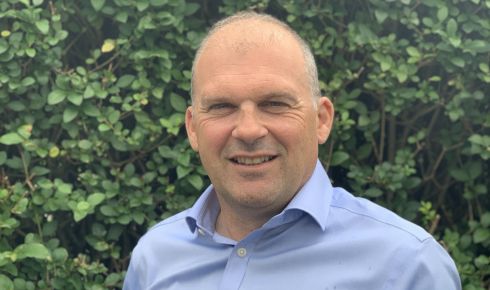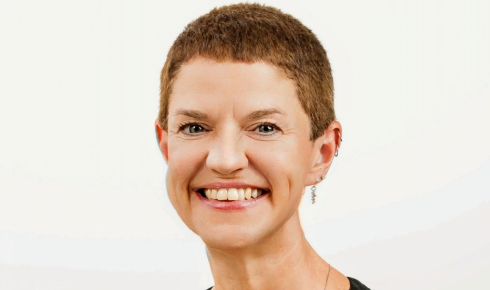Member profiles
26 May 2025
Kevin Shakesheff FRSB on working to get clinical approval for a new medicine for patients with intervertebral disc degeneration and Maddy Parsons FRSB on microscopy and mosh pits
A DAY IN THE LIFE
Kevin Shakesheff FRSB is pro-vice-chancellor for research and innovation at the Open University. From September 2025 he will be vice-chancellor of Keele University.

My alarm goes off…
At about 05:45 if I’m working in Milton Keynes at the Open University (OU) campus that day. I live in Nottingham, where I worked at the University of Nottingham for more than 25 years, but spend at least three days a week in Milton Keynes. The other two days I’m in Nottingham and the alarm goes off much later.
My work involves…
An incredible variety of activities. I’m very lucky to have such an interesting portfolio of roles. My research over the last 25 years led me to work with many fantastic scientists, engineers and clinicians in the UK, Europe, Australia and the US. Most of my research focus now is helping the Nottingham-based company, Locate Bio, to get clinical approval for a new regenerative medicine for spinal fusion in patients with intervertebral disc degeneration.
The medicine releases a growth factor protein within the patient for extended periods of time. It has been a long and hard process, but finally the funding, ethical approvals and site initiations are in place, and we hope to have an approved product that transforms treatments in the next three years. This work bridges my time at Nottingham and the OU, and it’s great to be able to follow the idea from the first BBSRC grant through to clinical trials.
On a typical day…
I don’t get to do any research of my own! At the OU we’re expanding our research to look at societal challenges in sustainability, tackling inequalities and improving health and education. I really enjoy finding talented teams, and helping them grow their ideas and make an impact. I spend most of my time working across our faculties on research ideas that are a million miles from my own expertise.
Right now…
I am judging more than 60 research ideas that have been submitted by UK charities. They have applied to work with OU teams to solve challenges at the heart of their missions.
I also enjoy…
Working on national strategies for research. I recently completed my term as chair of the National Centre for Replacement, Refinement and Reduction (NC3Rs) and still follow its amazing progress in enhancing in vitro and in vivo biology.
THE CAREER LADDER
Maddy Parsons FRSB is professor of cell biology; and academic director of Nikon Imaging Centre and Microscopy Innovation Centre, King’s College London.

I first discovered biology…
At school and as an undergrad, but it was during my PhD at UCL, where I was studying how scarring occurs in the skin, that I knew I wanted to be an academic scientist. It really opened my eyes to the power of using different techniques to help uncover new biological processes. Despite being trained as a biochemist, I was introduced to microscopy towards the end of my PhD and was immediately fascinated by how much more it could reveal about how proteins are organised in cells and tissues. This led me to choose a postdoc focusing on advanced imaging techniques, and I’ve been hooked ever since.
A pivotal point in my career was…
When I received my Royal Society (RS) University Research Fellowship to start my own lab. I think the moment where I realised that I wanted to be an independent researcher was the most exciting, but also the most unsettling time in my career (see ‘Progressing to PI, p34). I went down the Fellowship route because I wanted to maximise my protected research time, but they’re really competitive and I didn’t really have a plan B. Fortunately, I had some great mentors who helped me along the way and I was lucky to receive the RS Fellowship, which was a brilliant foundation from which to build my independent academic career.
The best thing about my job is…
Working with so many brilliant people to discover new processes that contribute to human disease. We work collaboratively with other teams, across many different disciplines. I love the fact that I’m learning new things every day.
The worst thing about my job is…
We rely very heavily on advanced microscopes and when they don’t work it can be very frustrating.
A key piece of advice would be…
Don’t give up! Research is not always plain sailing, and experiments often don’t work or data doesn’t make sense. But the highs of uncovering new and exciting biology far outweigh these blips. Talking to others and sharing your experiences makes a huge difference and can accelerate problem-solving, so don’t suffer in silence.
Not many of my colleagues will know…
I’m a massive fan of rock music and have spent many happy hours in ‘mosh pits’ at gigs (although I’m a bit old for that now). I’m also a keen runner and love to get my trainers on wherever I am in the world – for me, it’s the best way to see new places and get some head space.
In the future I hope to…
Be able to apply our skills in fundamental cell biology and bioimaging to find new ways to treat diseases and help patients.


